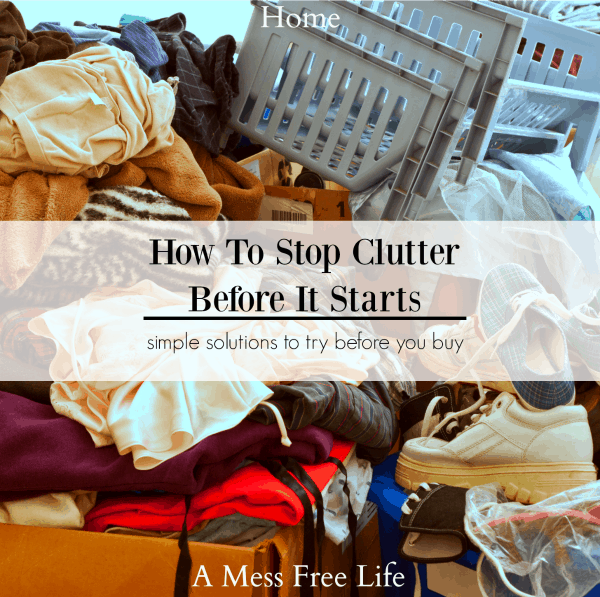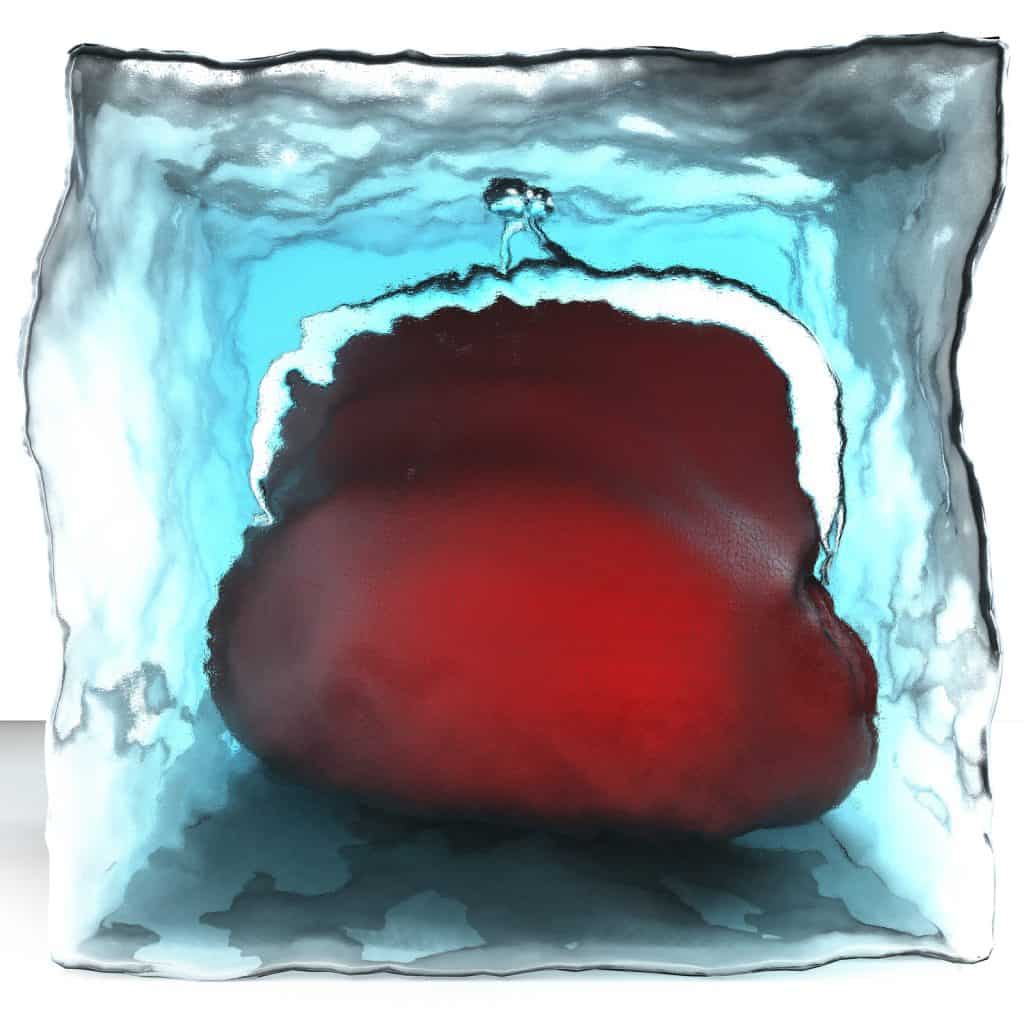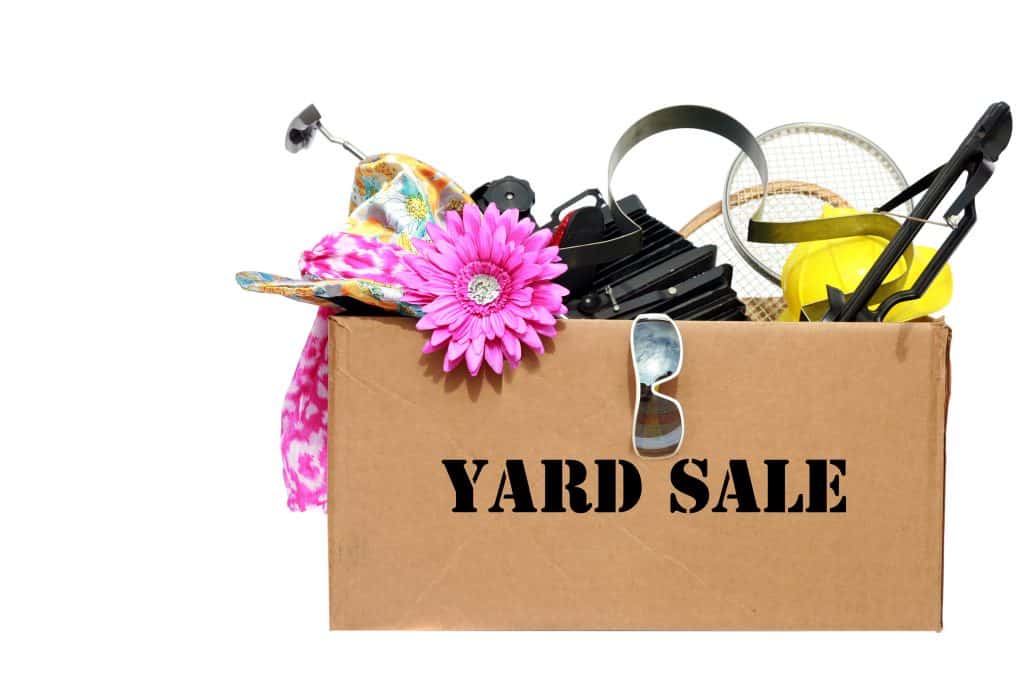A Mess Free Life may collect a share of sales or other compensation from the links on this page.
Clutter is one of those things that can easily sneak up on you when you’re not paying attention. It has a life of its own and a special way of just taking over. And usually, clutter is made of those many items we made a choice to spend money on at some point. Now they’re creating chaos and we never even used them. They’re just stuff. Stuff we don’t really need. So it begs the questions: “How do I stop clutter before it starts?”

Table of Contents
HOW TO STOP CLUTTER BEFORE IT STARTS
Friends and family give us gifts that we never use but we hang on to them for sentimental reasons and we feel guilty about letting them go. But we’re to blame as well. We often give gifts out of obligation without even putting any thought into it so we fill other people’s lives with clutter.
The only way to clear ourselves of clutter is to learn how to keep it from even starting. Stopping it before it even comes through the door.
This takes some willpower though. It means learning to stop impulse shopping, saying no to “final clearance” sales, and being more conscious about the decisions we make when buying. It also involves setting a few limits and only shopping for what you absolutely need.
You need a plan for both why you’re going to the store and what you intend to purchase before you even walk in.
All hope is not lost!
There are a few great solutions you can try right now to end the cycle of accumulation and stop clutter.
First, you have to be willing to change your bad habits and transform them into good ones. One great way to kickstart your new good habit is by trying a month of zero spending. Doing a no spend challenge is a great way to examine your habits and find new ways to get on track.
Additionally, there are other strategies you can try next time you’re tempted to make a purchase that will help you stop clutter before it starts.
SIX BEFORE YOU BUY STRATEGIES TO TRY
ORGANIZE
One of the easiest ways to stop clutter is to organize. Often we buy things we don’t need because we can’t find what we already bought. Taking some time to get organized will help you avoid duplicate purchases. Plus, you’ll probably find some treasures you forgot you had!
GET CREATIVE
Before running out to the store to make a purchase, first determine if it’s something you really need or do you already have something on hand you can adjust or modify and make it work. Getting creative with things you already have around the house can end up saving you hundreds of dollars. Not sure what you can use instead? Go to Pinterest for a quick search; you’ll be amazed at what you find utilizing what you already own. This will stop clutter from ever making into your home in the first place.
MAKE A PLAN
If you’ve already gotten everything organized and you’ve determined that you don’t have what you need AND you can’t use something else, make a plan before shopping. Write down things you need as the need arises. Not just for the purpose of not forgetting when you get to the store, but because stopping to write it down gives you a chance to take a pause. This momentary thought process will allow you to determine if you really need the item after all. And if you decide that you really need, make sure you stick to your list when you get to the store.
LIMIT YOUR SPENDING
To avoid making impulse purchases, leave your debit and credit card at home. Instead, take just the amount of cash you need to buy what’s on your list. Do your best to estimate what your list will cost then add a few extra dollars just in case. When you get to the store, you’re now only able to spend what’s in your wallet and nothing more so you’re forced to stick to your list. This simple trick, using cash only, will significantly stop clutter from coming into your home.
TAKE A BREAK
If you really need to cut back on your shopping, avoid the stores that trigger your impulse purchases. At least for a while. If you have a habit of heading into Target for one thing and walking out with $100 less in your bank account and still didn’t get what you went in for, it’s time to take a break from that store. Some stores trigger impulse purchases more than others. Know this about yourself and have the willpower to make fewer trips.
If you’re serious about reducing your clutter this might be a serious consideration for you.
THINK IT OVER
If you’ve been tempted by a wonderful impulse purchase, decide to walk away for 24 hours. It will still be there tomorrow. Just give yourself some breathing room to determine if you really do need it or you don’t have anywhere to put it anyway.
WHEN YOU DO BUY: STRATEGIES TO HELP STOP CLUTTER
 SET PURCHASE LIMITS
SET PURCHASE LIMITS
When you decide that you do in fact need to make a purchase, set a limit as to how many you can buy. For instance, only buy one new top at a time or one mascara every three months. Setting limits work for pantry items too. Unless there’s a great sale for stockpiling purposes or on something non-perishable, you only need to buy what you need for the current week.
CHOOSE QUALITY OF QUANTITY
Instead of buying a different coat for every outfit, buy one quality coat that will go with everything. Invest in a quality item that will last for years to come instead of an immediate quick-fix that will probably only last a few months or a year at best.
SOMETHING IN = SOMETHING OUT
Every time you bring a new item into the house, something has to go. Don’t buy new jeans without getting rid of an old pair. The same goes for shoes, toys, books, and just about anything else. Each time you make a purchase, think about what you can throw away, donate, or drop in the yard sale box so that you can bring this new purchase home.
THINK USED
Consider shopping at thrift stores for some of your purchases. Not everything has to be new. And in fact, you’d be surprised at how many brand new items you can find at a thrift store at a major discount. Clothes, handbags, and home décor can all be purchased for a fraction of the cost at a thrift store.
DON’T MAKE SHOPPING A HOBBY
Skip wandering around the mall with no purpose, this just opens you up to be tempted by something wonderful you really don’t need. Instead, shop with a purpose. Know what you’re going for and don’t allow yourself to be distracted by other things you don’t need.
CONCLUSION
Once you get organized, it’s much easier to control the clutter. The key is to control it before it even comes into your home. Buying things you don’t really need and hanging on to things only helps the clutter to grow even further out of control.



